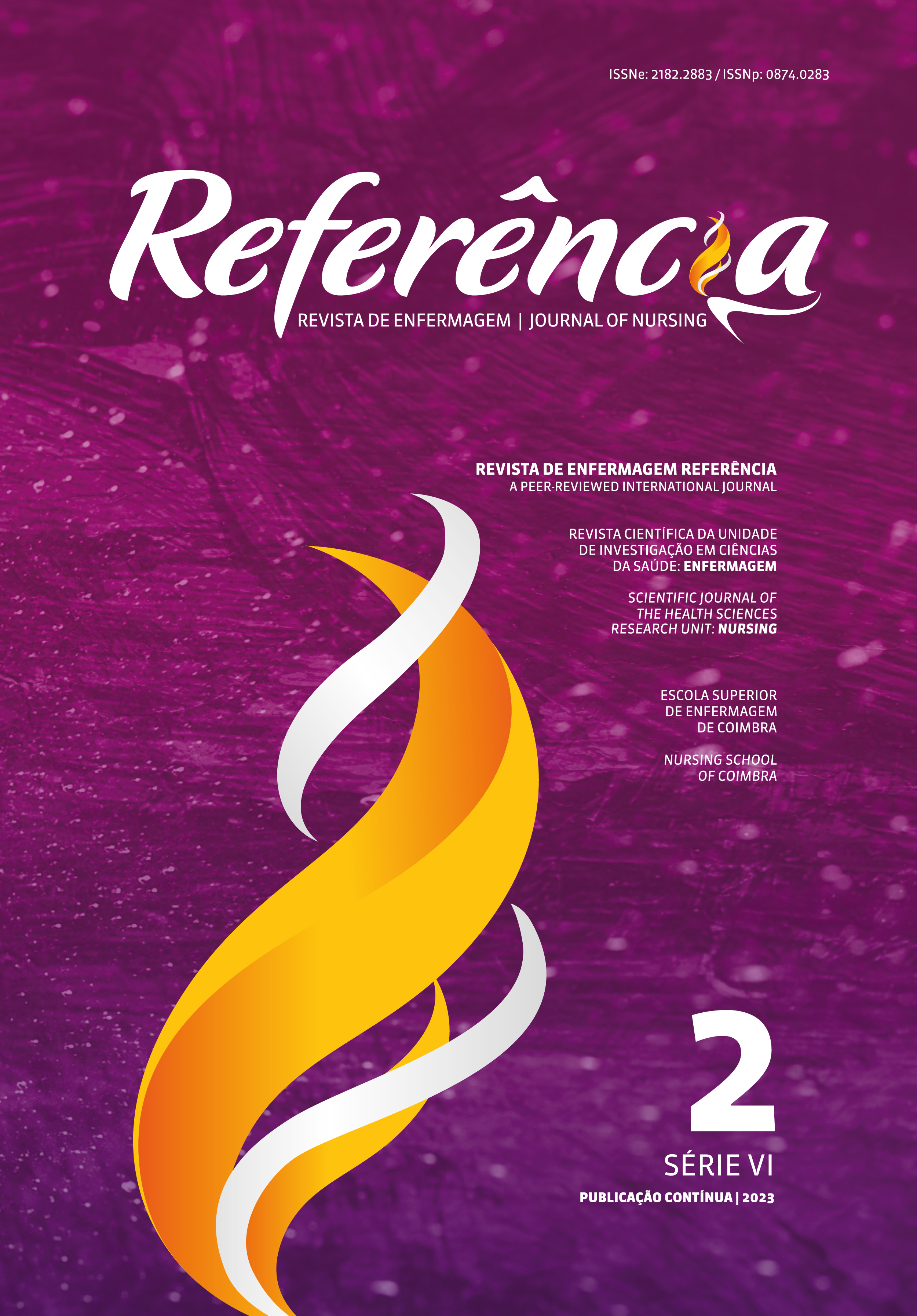Quality of life of prostate cancer patients: A nursing care model
DOI:
https://doi.org/10.12707/RVI22086Keywords:
quality of life, prostatic neoplasms, nursing; health promotion, patient satisfactionAbstract
Background: Cancer constitutes a dramatic life experience, disrupting homeostasis. With population aging and prolonged survival in cancer patients, it is essential to increase their quality of life.
Objective: To develop and implement a nursing follow-up model focused on the vulnerabilities of patients with prostate cancer in order to improve their quality of life.
Methodology: A pilot study was conducted on six patients with prostate cancer. Data were collected through the application of the QLQ-INFO25 and HADS and interviews in the outpatient consultation of a private hospital.
Results: Changes in the dimensions of health-related quality of life. Implementing the follow-up model revealed that "health education, self-confidence, and attitude" are essential aspects of the nurses' work with these patients. Working on patients' vulnerabilities improved their quality of life.
Conclusion: The model benefits health promotion, well-being, complication prevention, and in creased satisfaction. The team's individualized work improves these patients' quality of life.
Downloads
References
Asencio, J., Jiménez, G., Santos, F., Herrera, J., Mañas, M., Carrasco, A., et al. (2008). Effectiveness of a nurse-led case management home care model in Primary Health Care: a quasi-experimental, controlled, multi-centre study. BMC Health Serv Res, 8:1-13.
Bardin, L. (2008). Análise de conteúdo. Edições 70.
Brueck, M., & Sulmasy, D. (2020). The rule of double effect: a tool for moral deliberation in practice and policy. Health Policy & Law, Center for Bioethics Harvard Medical School. https://bioethics.hms.harvard.edu/journal/rule-double-effec
Cardoso, G., Luengo, A., Trancas, B., Vieira, C., & Reis, D. (2009). Aspetos Psicológicos do Doente Oncológico. Revista do Serviço de Psiquiatria do Hospital Prof. Doutor Fernando Fonseca, EPE, 7(1&2):9-18. https://doi.org/10.25752/psi.4
Carvalho, J., & Cristão, A. (2012). O valor dos cuidados de enfermagem: a consulta de enfermagem no homem submetido a prostatectomia radical. Revista de Enfermagem Referência, 7, III Série:103-112.
Direção-Geral da Saúde. (2016). A Saúde dos Portugueses 2016, 96–107. http://pns.dgs.pt/files/2016/09/AnexoIIId_A-Saúde-dos-Portugueses-2016.pdf
Freire, C. (2013). A prática da gestão de caso na unidade de cuidados na comunidade. Relatório de Trabalho de Projeto apresentado para a obtenção do Grau de Mestre na Especialidade de Enfermagem Comunitária. Escola Superior de Saúde de Santarém, pp. 67.
Guan, T., Santacroce, S., Chen, D-G., Song, L. (2020). Illness un certainty, coping, and quality of life among patients with prostatecancer. Psycho-Oncology, 29:1019–1025. https://doi.org/10.1002/pon.5372
Kato, T. & Sugimoto, M. (2020). Quality of life in active surveillance for early prostate cancer. International Journal of Urology, 27(4):298-306. https://doi.org/10.1111/iju.14202
Liga Portuguesa Contra o Cancro (2021). Novembro azul: mês de prevenção do cancro da próstata. https://www.ligacontracancro.pt/novembroazul/
Machado, S., & Sawada, N. (2008). Evaluation Quality of Life in Oncology Patients Submitted To Adjuvant. Texto e Contexto Enfermagem, 17(4):750-757.
Marques, M. A. (2010). Informação ao doente oncológico. Validação da versão Portuguesa do questionário EORTC QLQ-INFO26. (Master’s Dissertation). Faculdade de Medicina da Universidade de Lisboa. Lisboa. Portugal.
Meleis, A. (2007). Theoretical nursing development progress. 5a ed. Wolters Kluwer Health Lippincott Williams & Wilkins.
Meleis, A. (2010). Transitions theory. Springer Publishing Company.
Mota, L. (2018). A Pessoa submetida a transplante hepático: um modelo de acompanhamento de enfermagem. Dissertação de candidatura ao grau de Doutor em Ciências de Enfermagem, Instituto de Ciências Biomédicas Abel Salazar da Universidade do Porto, pp. 335.
Pais-Ribeiro, J., Silva, I., Ferreira, T., Martins, A., Meneses, R., & Baltar, M. (2007). Validation study of a Portuguese version of the hospital anxiety and depression scale. Psychology, Health and Medicine, 12(2):225–237.
Pereira, F. (2009). Informação e qualidade do exercício profissional dos enfermeiros. Doctoral thesis in Nursing Sciences, Instituto de Ciências Biomédicas Abel Salazar da Universidade do Porto, pp. 430.
Polit, D. F., & Beck, C. T. (2017). Nursing research: Generating and assessing evidence for nursing practice (10th ed.). Wolters Kluwer/Lippincott Williams & Wilkins.
Porter, M. (2014). Value-based health care delivery creating. Institute for Strategy Competitiveness. https://www.isc.hbs.edu/health-care/value-based-health-care/Pages/default.aspx
Rizzo, L., & Spitz, E. (2002). Qualité de vie, santé et maladie. In Gustave-Nicolas Fischer, Traité de psycologie de la santé. pp. 283–299. Paris: DUNOD.
Silva, J., Valente, R., & Sousa, P. (2015). Estrategias de autocuidado das pessoas com doença oncológica submetidas a quimioterapia/radioterapia e a sua relação com o conforto. Enfermería Global, 37:384-400.
WHOQOL Group. (1993). Study protocol for the World Health Organization project to develop a quality of Life assessment in strument (WHOQOL). Quality of Life Research, 2(2):153–159. https://doi.org/10.1007/BF00435734






















